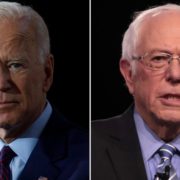All statements are available on the AAUP
’s website and in the eleventh edition of the AAUP
“Redbook,
” formally titled
Policy Documents and Reports, which can be purchased from Johns Hopkins University Press. Protecting an Independent Faculty Voice:
Academic Freedom after Garcetti v. Ceballos
Academic freedom “… is the freedom to teach, both in and outside the classroom, to conduct
research and to publish the results of those investigations, and to address any matter of
institutional policy or action whether or not as a member of an agency of institutional
governance. Professors should also have the freedom to address the larger community with
regard to any matter of social, political, economic, or other interest, without institutional
discipline or restraint, save in response to fundamental violations of professional ethics or
statements that suggest disciplinary incompetence.”
1940 Statement of Principles on Academic Freedom and Tenure
“Institutions of higher education are conducted for the common good and not to further the
interest of either the individual teacher or the institution as a whole. The common good depends
upon the free search for truth and its free exposition.”
Statement on Professional Ethics
“As teachers, professors encourage the free pursuit of learning in their students.”
“Professors demonstrate respect for students as individuals and adhere to their proper roles as
intellectual guides and counselors.”
“They avoid any exploitation, harassment, or discriminatory treatment of students.”
Freedom in the Classroom
… some assume “that students have a right not to have their most cherished beliefs challenged.
This assumption contradicts the central purpose of higher education, which is to challenge
students to think hard about their own perspectives, whatever those might be. It is neither
harassment nor discriminatory treatment of a student to hold up to close criticism an idea or
viewpoint the student has posited or advanced. Ideas that are germane to a subject under
discussion in a classroom cannot be censored because a student with particular religious or
political beliefs might be offended.”
Statement on Extramural Utterances
“The controlling principle is that a faculty member’s expression of opinion as a citizen cannot
constitute grounds for dismissal unless it clearly demonstrates the faculty member’s unfitness
for his or her position. Extramural utterances rarely bear upon the faculty member’s fitness for
the position.”
Statement on Government of Colleges and Universities
“When ignorance or ill will threatens the institution or any part of it, the governing board must



